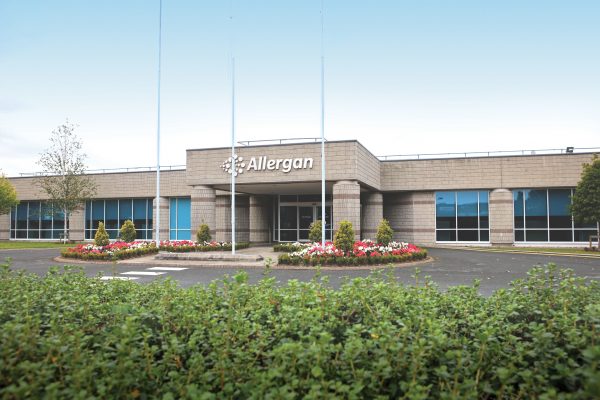
A drugmaker is recalling a brand of textured breast implants due to a risk of a rare type of blood cancer.
Dublin-headquartered Allergan said Wednesday it was voluntarily recalling its Biocell textured breast implants and tissue expanders worldwide as a precaution after the Food and Drug Administration notified the company that the products were linked to uncommon incidence of breast implant-associated anaplastic large-cell lymphoma, or BIA-ALCL.
ALCL is a type of T-cell non-Hodgkin’s lymphoma, or T-NHL. T-NHLs are generally much rarer than B-cell non-Hodgkin’s lymphomas – accounting for about 7 percent of all NHLs overall, according to the Lymphoma Research Foundation – and ALCL further accounts for 11 percent of T-NHLs. Seattle Genetics’ Adcetris (brentuximab vedotin) has FDA approval for certain ALCL patient subgroups. Drugs like Ortho Dermatologics’ Targretin (bexarotene), Celgene’s Istodax (romidepsin) and Merck & Co.’s Zolinza (vorinostat) are approved for other T-NHL histologies, but are used off-label for ALCL.
Allergan said its smooth and Microcell products were not affected by the recall, but that saline- and silicone-filled Biocell products would no longer be sold, and healthcare providers should no longer implant them.
Breast implants are a relatively small part of Allergan’s business compared to its top-selling pharmaceutical brands. Last year, revenues from its breast implant business were $393.1 million globally, down slightly from $399.5 million in 2017, according to the company’s 2018 annual earnings report. By contrast, global sales of its leading product, Botox (onabotulinumtoxinA), were nearly $3.6 billion.
Nevertheless, the recall comes at a significant time for the company. Last month, AbbVie, based near Chicago, announced an agreement to acquire Allergan for $63 billion. In 2024, Allergan will lose patent protection on another of its leading products, the dry eye drug Restasis (cyclosporine), but the Supreme Court declined to take up its appeal of a lower court’s decision rejecting its effort to protect the drug’s patents by handing them to a Native American tribe. Restasis had global sales of more than $1.2 billion last year, almost all in the U.S., down from nearly $1.5 billion in 2017.
Photo: Allergan










